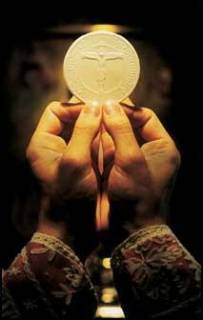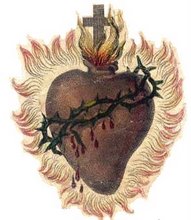The Nativity
Merry Christmas again to one and all! Unlike the secular culture, which abandons the Nativity of Christ even before the cord can be cut, we celebrate the Christmas season until the feast of the Baptism of the Lord on January 13. (I say this only as an excuse for my Christmas blog being late!)
My Christmas was wonderful! I had the regular slate of Christmas Masses here at the parish, and was blessed to celebrate Midnight Mass with a local monastery of Poor Clare nuns. I spent the early part of Christmas afternoon with my family, and the late part of Christmas afternoon sleeping on my family sofa! It was a blessed day.
Anyhow, this wonderful article from InsideCatholic.com is written by the inestimable Father James Schall, SJ, of Georgetown University. Enjoy and merry Christmas!
God love you!
************
We begin with the Beginning. The Word was with God. The Word was God. Flesh did not make the Word. What "dwelt amongst us" was the Word, the Logos, nothing less. This is a fact. The whole world is different because of it. The whole world exists, though it need not have existed. And if it "need not," why does it exist? The Spirit of God is called the Gift. Father, Son, Spirit, one God.
The English poet, Robert Southwell, in "The Nativity of Christ," writes:
Gift better than himself God doth not know;
Gift better than his God no man can see.
This gift doth here the giver given bestow;
Gift to this gift let each receiver be.
God is my gift, Himself He freely gave me;
God's gift am I, and none but God shall have me.
The world is the gift of the Giver to those who can freely receive it. Not only is the whole of the cosmos God's gift, but it would not have been given unless someone within it could say, "God's gift am I." We are made in the Image of God. "Gift to this gift let each receiver be." We are first "receivers," having been received. This is our glory.
The Incarnation means that the Second Person of the Trinity, called "Word" within the Godhead, became man. Homo factus est. Once we are born, we dwell midst our kind. This event, this Birth, of which we speak happened once during the reign of Caesar Augustus, "when the world was at peace."
The Nativity of the Logos was not a myth, nor an imagination. The world is not the same because of it. Because of it, the world can be what it was intended to be from the beginning. How could the world be, granted ex nihilo, nihil fit? If the Word of the Godhead is born amongst us, something is being said to us about what we are, why we are. The Word addresses hearers of words. All things are changed. Man can only know what he is when he knows what this Incarnation was.
We begin in conception. The Angel of the Lord said unto Mary. We proceed to birth, to the nativity. Glory to the new-born King. The nativity means that what is inside the mother now appears in the visible world. Mary pondered these things in her heart. We begin our celebration of new life with its nativity, when we can see and touch it. We rightly remember the day of our birth, not that of our conception, which is much more obscure, however much it is our real origin in this world. We count our years from the date of our own nativity.
The birth of a child takes place in a given time and place. At least the mother is present, hopefully the father and other relatives and friends. Even though human birth is in pain, when the new life is once present, there, visibly, joy appears to those who behold it. The father is now present. He begins to see. Things have to be done. He must do them.
At Christ's birth, in Bethlehem, the words "we bring you tidings of great joy" are heard. Not just joy, but "great' joy.
The aged Simeon said "this Child is set for the rise and fall of many in Israel"
The faithful, all of them, are invited to come; even to come "joyful and triumphant."
Why are they to be "joyful and triumphant?" One cannot be "joyful and triumphant" unless he has a reason.
Do we have a reason?
"God is my gift, Himself He freely gives me."
The Nativity of Christ did occur. We are not idealists. We are able to affirm of what is, that it is. The paradox: the gift of God is Himself, freely given to me in His Incarnation and Nativity. Even when I am first a gift, a further gift is given to me. "Grace upon grace." The receiver of gifts is himself a gift. This is our metaphysics, grace upon grace.
The kind of being we are -- from the beginning, from every nativity -- is intended to see God face to face. We can reject this gift, the gift upon gift. We are given an end beyond our nature; we are fallen and redeemed.
Christmas is the feast of the Nativity, of the Word now made Flesh and visible to us. When the Word is made Flesh, nothing is the same. We can now return, if we will, to that for which we are created. God created the world so that within the world would be those to whom He could give His inner life. There is only one temptation, to make our end less than it was intended for us to know. "Behold I bring you tidings of great joy, for today is born to us a Son who is Christ the Lord."
Rev. James V. Schall, S. J., teaches political science at Georgetown University. His latest book, The Order of Things, is recently published by Ignatius Press.




